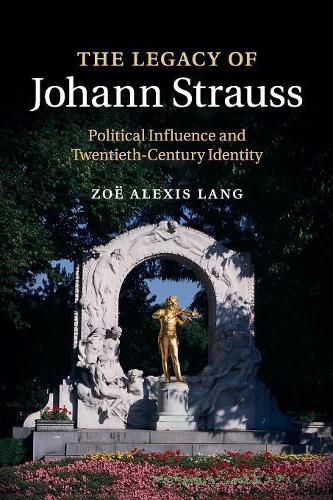Readings Newsletter
Become a Readings Member to make your shopping experience even easier.
Sign in or sign up for free!
You’re not far away from qualifying for FREE standard shipping within Australia
You’ve qualified for FREE standard shipping within Australia
The cart is loading…






To this day, Johann Strauss, Jr remains one of the most popular composers in his native city of Vienna. In The Legacy of Johann Strauss, Zoe Alexis Lang examines how the reception of Strauss’s waltzes played a key role in the construction of twentieth-century Austrian identity. Using press coverage from the centennial celebration of Strauss’s birth in Vienna, Lang argues that his music remained popular because it continued to be revitalised by Austrians seeking to define their culture. Revealing the origins of the Vienna Philharmonic’s New Year’s Concert, Lang considers how Strauss was appropriated as a National Socialist icon in the 1930s and 1940s, and explores the Strauss family’s Jewish ancestry, along with the infamous forgery of paperwork about their lineage during the 1940s. This book also includes a case study of Strauss’s Emperor Waltz, considering its variegated usage in concerts and films from 1925 to 1953.
$9.00 standard shipping within Australia
FREE standard shipping within Australia for orders over $100.00
Express & International shipping calculated at checkout
To this day, Johann Strauss, Jr remains one of the most popular composers in his native city of Vienna. In The Legacy of Johann Strauss, Zoe Alexis Lang examines how the reception of Strauss’s waltzes played a key role in the construction of twentieth-century Austrian identity. Using press coverage from the centennial celebration of Strauss’s birth in Vienna, Lang argues that his music remained popular because it continued to be revitalised by Austrians seeking to define their culture. Revealing the origins of the Vienna Philharmonic’s New Year’s Concert, Lang considers how Strauss was appropriated as a National Socialist icon in the 1930s and 1940s, and explores the Strauss family’s Jewish ancestry, along with the infamous forgery of paperwork about their lineage during the 1940s. This book also includes a case study of Strauss’s Emperor Waltz, considering its variegated usage in concerts and films from 1925 to 1953.